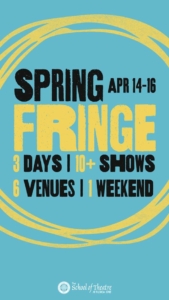“Creating New Work for Spring Fringe”
The moderators asked participants several questions.
1. What tactics and approaches did you find most useful in helping the students recognize, value, and actually create from their own individual voices and perspectives?
Students need to approach things from the perspective of low stakes. Most of my students in the last five years or so seem to think that every decision they make is a high-stakes one. This can be paralyzing for getting writing assignments done and even for making simple acting choices. In terms of making a piece, I often need to talk them into just trying something without worrying too much about whether or not it’s going to be brilliant.
Students often have ideas in their head about what they want to explore or images of performance that they don’t know how to achieve. Helping them with these involves talking through their ideas and proposing formal solutions and above all formal variation so that they understand that their particular piece doesn’t have to look like another.
2. What strategies did you use to encourage and support the students in making bold choices and risking (and potentially experiencing) failure in ways that would help them grow as artists and/or people?
I always attend one or two rehearsals. Sometimes I have had a senior BA also working on the project with me who has attended rehearsals as well. When I go to these I push them on what they’ve shown me, take a great many notes, and challenge them when they’ve opted for something too easy. These can also be wonderful periods of encouragement. The students have often been working hard, and they need to hear that what they’re doing is getting somewhere.
3. How did the project intersect with your particular institutional context? What tactics did you find helpful in getting stakeholders on board?
There are four things I want to talk about relative to this:
- My colleagues are not really interested in Fringe. But they’re interested in their classes filling—for my design and technical colleagues, we’ve been working on making Fringe a place where students in those courses can also show off what they’ve been working on. We started that this year, and we will do it again next year, as well. I do not know how I’ll get my performance colleagues interested in this, but I’ve mostly let it go.
- Our production staff is strapped, so I don’t involve them at all if I don’t have to. I’ve organized the project so that it’s taking place in non-theatre spaces, and I’m encouraging students to produce their own stuff. I’m involving staff when I need them—sometimes for sound or other equipment I know they’ll lend me—but mostly letting them alone.
- The Fall Fair portion of the Fringe is also quite important. Fall Fair is a place for faculty to promote their courses, and to get the students thinking about Fringe long before the Spring. My chair buys tons of pizza for this event, and the School actually really loves it.
- Finally, we have a large number of stage management students at FSU due to our incredibly dynamic stage management professor Casey Sammarco, so Fringe is a way for many of her students—especially the first- and second-year students—to work on a small DIY show and learn a lot.
4. What did you find most valuable about the project?
I think the project has been most valuable when I’ve seen audiences pour into these shows. Students build these pieces, but they don’t always know what the response is going to be. Every single year, these shows are filled with audiences. Obviously our School is very large, with 350 undergraduates or so, but I am always stunned at just how many are excited to come to Fringe and hang out for an hour or two watching small pieces and walking around the theatre building.
Again and again, students find that this is a kind of culminating piece that they’ve made in their time at FSU. Because this is primarily aimed at BA students, who don’t have a showcase performance, they often feel that their work for the Fringe is a way of showcasing or doing a kind of final, personal capstone. It’s been really exciting.



